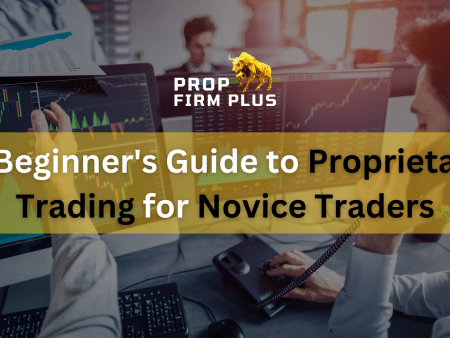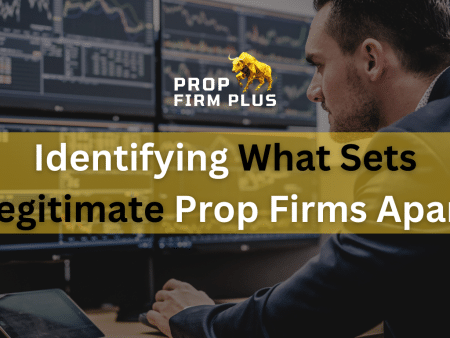
What You Need to Know about Prop Firms
For accomplished individual traders wishing to advance in their trading professions, prop trading may also provide excellent employment prospects.
In fact, a lot of traders believe that their ideal job would be to work for a major corporation that handles enormous quantities of money and gives them access to resources and knowledge that ordinary traders don’t. In addition, using the company’s funds when trading instead of your own provides protection in the event that a deal doesn’t work out.
However, because of the intense competition in the industry and the many dangers involved in trading, being hired by one of these proprietary trading organizations isn’t simple.
Certain contemporary prop trading firms provide traders the chance to demonstrate their abilities without requiring them to pass a typical screening procedure. They function as a fake trading platform, ultimately employing traders who show consistent gains over average.
Traders who choose to go down this route need to be aware of the hazards that come with prop trading. Prop firms often use an “asymmetric risk” model in which the profit-sharing structure gives the funded trader a significant advantage, as they get to keep between 75 and 90 percent of the earnings. Some companies could begin with a smaller percentage for traders and then progressively raise it in response to consistent profitability.
On the other hand, the trader usually bears the lion’s share—if not the whole burden—of the risk-sharing agreement. In addition, a lot of prop trading companies charge their traders monthly fees as well as entrance fees. These costs are subject to large fluctuations based on several factors, including given leverage and profit-sharing ratios. They start at a reasonable $45 for an assessment and have no ongoing fees, all the way up to a hefty $1000 a month plus a $300 monthly membership.
However, it’s critical for traders to understand that larger rewards frequently come with important benefits including better security, more favorable profit margins, and easier access to cash.
Traders should also closely monitor the policies of each organization in relation to profit withdrawals. While some companies only let withdrawals of 100$, others have a $5,000 minimum and frequently charge varying withdrawal costs.
FAQs about Proprietary Trading
What Distinguishes Prop Trading from Other Types of Trading?
Unlike individual traders’ personal capital projects and hedge funds’ long-term investor plans, prop trading uses the firm’s own cash to achieve rapid returns. Prop traders may harness substantial resources and knowledge using this method.
Which Requirements and Abilities Make Someone a Successful Proprietary Trader?
A combination of quantitative analysis, market intuition, and risk management abilities is needed for successful proprietary trading. Prop traders should have a strong work ethic, a commitment to lifelong learning, and graduate degrees in finance or similar subjects.
How Are Risks Managed by Proprietary Trading Firms?
To avoid suffering significant losses on a single deal, proprietary trading firms employ instruments like position size limitations and stop-losses to continuously monitor risks. Additionally, prop companies stress portfolio-level risk management through strategy diversification and appropriately hedged holdings.
Which Regulations Apply to Proprietary Trading Activities?
Prop trading firms are subject to market behavior guidelines, reporting requirements, and appropriate capital requirements put out by regulatory bodies such as the SEC. In order to stop illicit actions like insider trading and market manipulation.










